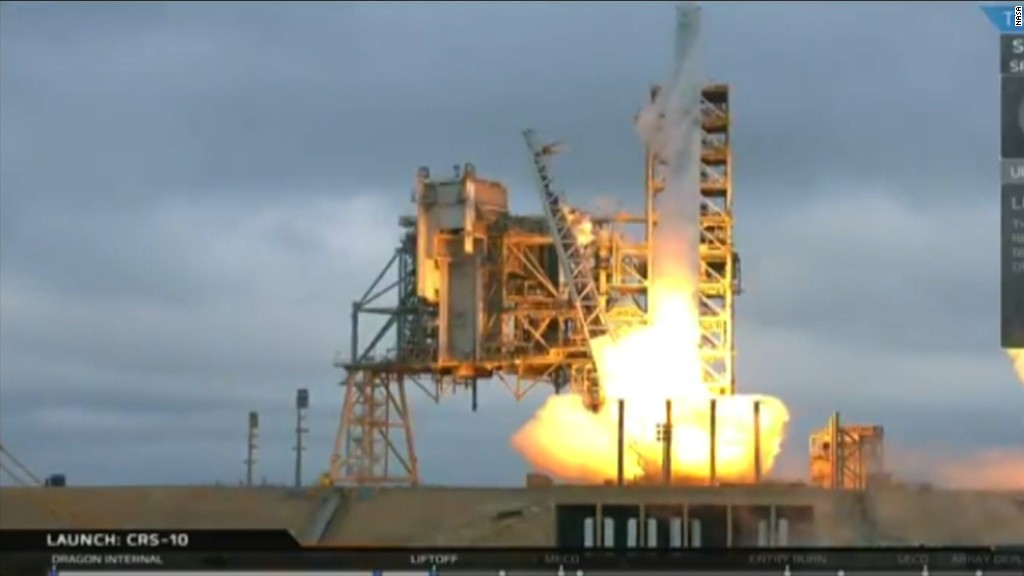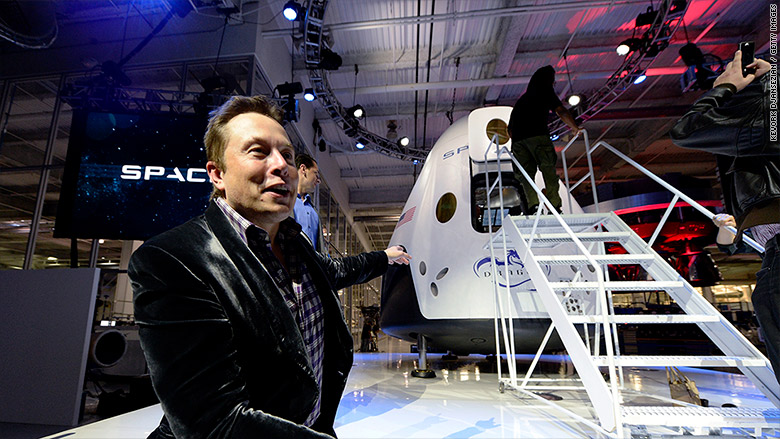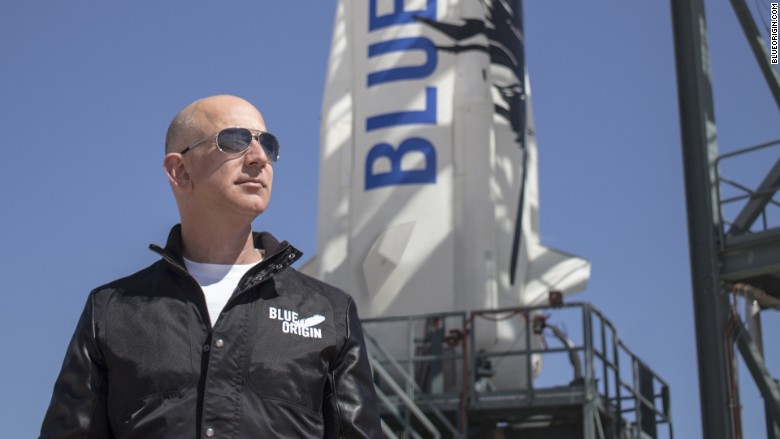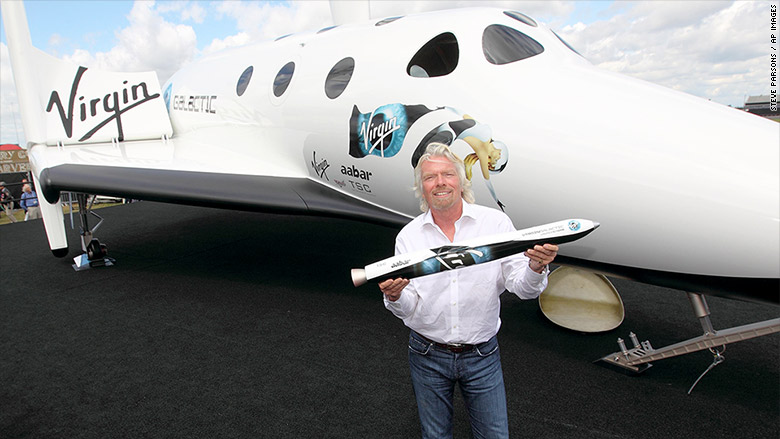
Three companies, three spaceships, three tycoons vying to live out their childhood sci-fi fantasies and explore outer space.
Tesla (TSLA) CEO Elon Musk, Amazon (AMZN) CEO Jeff Bezos and Virgin Group CEO Richard Branson all run private space outfits in addition to their day jobs.
Here's how their companies -- SpaceX, Blue Origin and Virgin Galactic -- are doing.
Elon Musk, SpaceX
Founded: 2002

The strategy: SpaceX has been taking trips to space to deliver satellites and make resupply missions to the International Space Station for years. The company aims to bring down the cost of spaceflight by reusing rockets. In the past, rockets have been discarded after just one launch.
Setbacks: SpaceX has faced two rocket explosions. The first happened in July 2015, when a rocket combusted mid-air, destroying a payload of NASA research materials. And in September 2016, a rocket that was carrying a satellite for Facebook (FB) exploded on the launch pad.
Big wins: SpaceX made spaceflight history on March 30 when it launched a used rocket that carried a satellite into orbit and then landed it safely a second time.
The company has won launch contracts with NASA, and has successfully executed more than 30 space missions since it was founded.
SpaceX has landed a rocket on nine different occasions, six of which occurred on a seaborne platform roughly the size of a football field.
It has also ventured farther into space than any of its private competitors, going into geosynchronus orbit, which is about 22,000 miles from Earth.
What's next: One thing is certain about Musk and his SpaceX team: They dream big.
SpaceX said in February that it will fly two space tourists to the moon sometime in 2018. That would be the first time SpaceX has ever launched a mission with humans on board.
The company also plans to go to the moon in December, when it will deliver a rover for SpaceIL -- one of the teams hoping to capture the $20 million grand prize in the Google Lunar XPrize.
SpaceX's ultimate goal is to travel to Mars, and eventually colonize it. "I want to die on Mars," Musk has said, "just not on impact."
Jeff Bezos, Blue Origin
Founded: 2000

The strategy: Like Musk, Bezos also wants to reuse rockets to drive down the cost of space travel. But for the time being,s Blue Origin is mostly interested in conducting suborbital flights for tourists.
Big wins: Blue Origin has actually launched and landed the same rocket, named New Shepherd, on five different occasions. But these flights were suborbital, meaning they only traveled about 60 miles from Earth.
In fact, Blue Origin was the first to land a rocket successfully -- before SpaceX did. But SpaceX lands rockets after completing far more difficult missions that travel to well into orbital space. That's something Musk was quick to point on Twitter when he traded barbs with Bezos.
What's next: Bezos has said he hopes the first space tourism launch will occur sometime in 2017. There's no word yet on how much tickets will cost.
Blue Origin is also underway developing a new rocket -- called the New Glenn -- that it says will be powerful enough to complete more difficult missions, like carrying satellites and other payloads to orbit.
Richard Branson, Virgin Galactic
Founded: 2004

The strategy: Like Blue Origin, Virgin Galactic is focused on taking tourists to space.
Instead of traditional rockets, however, Virgin Galactic wants to fly a reusable space plane, called SpaceShipTwo. It takes off just like an airplane, but faster -- at 2,500 mph.
The idea is for the plane to travel about 10 miles above Earth where it will release a spaceship carrying passengers, who will then travel about 60 miles from Earth before returning.
Virgin Galactic has already started selling tickets -- for $250,000 a pop -- and celebrities like Justin Bieber and Ashton Kutcher have signed up.
Setbacks: The company has never conducted a test flight that's gone further than 13 miles above Earth. And tragedy struck the company in 2014 when a spaceship exploded over California during a test flight, killing the co-pilot. Virgin Galactic has been regrouping ever since.
What's next: Virgin Galactic is conducting test flights for an updated version of its spacecraft. It started those test flights last year, but the company has not yet said when it expects to be commercially operational.





